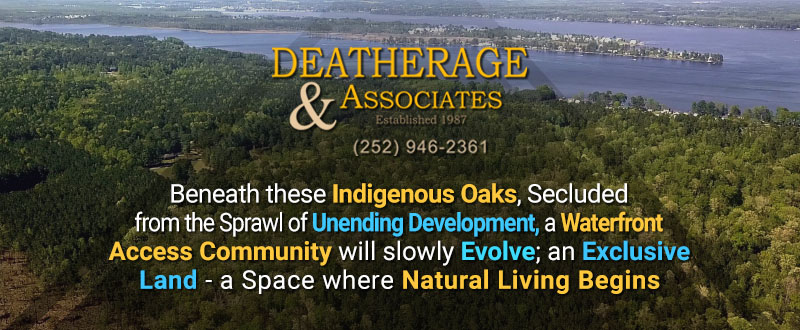Boldly Committed to Truth Telling in the False Face of Fakery
Lessons From Saipan
Publisher's Note: This post appears here courtesy of ECU News Services. The author of this post is Kristen Martin.
After three years of delays due to the COVID-19 pandemic, East Carolina University faculty returned to Saipan to host two week-long residential history and culture programs for K-12 educators.
"Saipan's Land and Sea: Battle Scars & Sites of Resilience" allowed 72 educators the opportunity to interact and learn from a largely undisturbed record of conflict history on the island of Saipan. The National Endowment for the Humanities-funded program is led by College of Education professor Anne Ticknor and Thomas Harriot College of Arts and Sciences professor Jennifer McKinnon.
"The program was designed to include multiple voices and perspectives to add depth and nuance to their learning about Saipan during classroom sessions, landmark visits on the island and in the lagoon, community lectures and events, and interactive demonstrations," Ticknor said. "For many of our participants, this was their first visit to Saipan and the Pacific Islands."
The 72 educators represented 21 U.S. states, Washington, D.C., Guam, Saipan and Rota, and included teachers from kindergarten through high school, museum educators, administrators and homeschoolers.
"Our focus was to add to our group learning with a variety of diverse perspectives from our participants," Ticknor said. "We saw this as a plus and started community building and learning together before the program began through social media, a virtual preprogram meeting, encouraging participants to coordinate travel and housing and a series of collaborative exchanges."
Throughout the week, participants learned about the indigenous history of the Northern Mariana Islands, community experiences before the Battle for Saipan, civilian experiences and military perspectives during the battle, and conflict history.
Aaron Sullivan, an eighth-grade U.S. History teacher in El Cajon, California, applied for the Saipan program for several reasons. His uncle, a U.S. Marine Corps aviator, is listed as missing in action, and his grandfather fought in Europe during World War II. He is also involved with Project Remembrance, a volunteer organization that helps next of kin find out more about their loved ones who have been lost in aircraft accidents.
Sullivan talked about his passion for aircraft archaeology with Fred Camacho, a member of the Saipan project team, who organized an excursion to visit a major crash site with wreckage on the island.
"Navigating down the jungle mountain in the middle of a monsoon storm was an experience I will never forget," Sullivan said. "It made me realize once again why I study history and reinvigorated my love of the subject. My students will benefit greatly by the passion I am bringing back into the classroom this year."
A love of history is what drew Claudia Palacios, an English language learner (ELL) teacher at Kagman Elementary School in Saipan and an online high school U.S. Government, economics and world history teacher, to the program.
"When I was the social studies education specialist, this was the type of experience that I was promoting and envisioning for my teachers," Palacios said. "I strongly believe that if we want our teachers to pass on their passion for history, we need to provide those personalized experiences for teachers as well."
As part of the curriculum, participants visited several caves, military tunnels, underwater heritage sites, Forbidden and Bird islands, and more. Being able to immerse themselves in the areas they were learning about had a profound impact on many of the participants, such as Yolanda Fernandez-Carr, the principal at La Palma Correctional Center in Arizona.
"My most memorable experience was the trip to the caves - bomb shelters where people hid," Fernandez-Carr said. "I could feel the families and the anguish they must have had."
Her participation in the program was driven by an observation that students and the public in general are not aware of the impact World War II, specifically in the Pacific theater, had on the United States and the world.
"As a veteran, it broke my heart; as an educator, I felt compelled to do something about it," she said. "I saw the opportunity to go to Saipan and experience firsthand the impact of the war on local populations and the perpetrators. ... I went to Saipan and was amazed at the way history is a part of the local everyday life. The resiliency of the people was incredible."
The participating educators were not the only ones learning valuable lessons during their week in Saipan. Ticknor noted that the two weeks influenced her teaching philosophy, especially as it relates to place-based learning.
"We all came from different content and expertise backgrounds, and we trusted each other to lead with our strengths," she said. "We also worked together to reflect and adapt based on our participants' needs and interests. Learning from all of these educators and our community partners encouraged me to fine-tune my skills as an educator and to continually center place in education."
Go Back
After three years of delays due to the COVID-19 pandemic, East Carolina University faculty returned to Saipan to host two week-long residential history and culture programs for K-12 educators.
"Saipan's Land and Sea: Battle Scars & Sites of Resilience" allowed 72 educators the opportunity to interact and learn from a largely undisturbed record of conflict history on the island of Saipan. The National Endowment for the Humanities-funded program is led by College of Education professor Anne Ticknor and Thomas Harriot College of Arts and Sciences professor Jennifer McKinnon.
"The program was designed to include multiple voices and perspectives to add depth and nuance to their learning about Saipan during classroom sessions, landmark visits on the island and in the lagoon, community lectures and events, and interactive demonstrations," Ticknor said. "For many of our participants, this was their first visit to Saipan and the Pacific Islands."
The 72 educators represented 21 U.S. states, Washington, D.C., Guam, Saipan and Rota, and included teachers from kindergarten through high school, museum educators, administrators and homeschoolers.
"Our focus was to add to our group learning with a variety of diverse perspectives from our participants," Ticknor said. "We saw this as a plus and started community building and learning together before the program began through social media, a virtual preprogram meeting, encouraging participants to coordinate travel and housing and a series of collaborative exchanges."
Throughout the week, participants learned about the indigenous history of the Northern Mariana Islands, community experiences before the Battle for Saipan, civilian experiences and military perspectives during the battle, and conflict history.
Aaron Sullivan, an eighth-grade U.S. History teacher in El Cajon, California, applied for the Saipan program for several reasons. His uncle, a U.S. Marine Corps aviator, is listed as missing in action, and his grandfather fought in Europe during World War II. He is also involved with Project Remembrance, a volunteer organization that helps next of kin find out more about their loved ones who have been lost in aircraft accidents.
Sullivan talked about his passion for aircraft archaeology with Fred Camacho, a member of the Saipan project team, who organized an excursion to visit a major crash site with wreckage on the island.
"Navigating down the jungle mountain in the middle of a monsoon storm was an experience I will never forget," Sullivan said. "It made me realize once again why I study history and reinvigorated my love of the subject. My students will benefit greatly by the passion I am bringing back into the classroom this year."
A love of history is what drew Claudia Palacios, an English language learner (ELL) teacher at Kagman Elementary School in Saipan and an online high school U.S. Government, economics and world history teacher, to the program.
"When I was the social studies education specialist, this was the type of experience that I was promoting and envisioning for my teachers," Palacios said. "I strongly believe that if we want our teachers to pass on their passion for history, we need to provide those personalized experiences for teachers as well."
As part of the curriculum, participants visited several caves, military tunnels, underwater heritage sites, Forbidden and Bird islands, and more. Being able to immerse themselves in the areas they were learning about had a profound impact on many of the participants, such as Yolanda Fernandez-Carr, the principal at La Palma Correctional Center in Arizona.
"My most memorable experience was the trip to the caves - bomb shelters where people hid," Fernandez-Carr said. "I could feel the families and the anguish they must have had."
Her participation in the program was driven by an observation that students and the public in general are not aware of the impact World War II, specifically in the Pacific theater, had on the United States and the world.
"As a veteran, it broke my heart; as an educator, I felt compelled to do something about it," she said. "I saw the opportunity to go to Saipan and experience firsthand the impact of the war on local populations and the perpetrators. ... I went to Saipan and was amazed at the way history is a part of the local everyday life. The resiliency of the people was incredible."
The participating educators were not the only ones learning valuable lessons during their week in Saipan. Ticknor noted that the two weeks influenced her teaching philosophy, especially as it relates to place-based learning.
"We all came from different content and expertise backgrounds, and we trusted each other to lead with our strengths," she said. "We also worked together to reflect and adapt based on our participants' needs and interests. Learning from all of these educators and our community partners encouraged me to fine-tune my skills as an educator and to continually center place in education."
| SECU Foundation Surpasses Quarter of a Billion Dollars in Funding for NC Non-Profits | East Carolina University, School News, The Region, Neighboring Counties | Delivering Leadership |
Latest Neighboring Counties
|
Republicans Bokhari and Driggs retain seats on city council.
Published: Tuesday, March 26th, 2024 @ 12:50 am
By: Carolina Journal
|
|
Members of the North Carolina Rural Health Association (NCRHA) visited Washington, D.C., on Feb. 14, 2024, to meet with elected officials and advocate for policies to improve access to care in rural areas.
Published: Wednesday, February 28th, 2024 @ 12:51 am
By: Eastern NC NOW Staff
|
|
The US Supreme Court will not take the case of Virginia-based owners of a Dare County beach home who challenged the county's COVID-related shutdown in 2020.
Published: Tuesday, February 6th, 2024 @ 10:14 pm
By: Carolina Journal
|
|
The North Carolina State Fair is set for the Raleigh state fairgrounds from October 12-22, 2023
Published: Friday, February 2nd, 2024 @ 9:01 am
By: Carolina Journal
|
|
A $2.5-billion-dollar bond referendum is slated to be placed on the November ballot this year, as Charlotte-Mecklenburg Schools (CMS) looks for support to fund 30 different projects in the school district.
Published: Sunday, January 14th, 2024 @ 10:08 am
By: Carolina Journal
|
|
Five Asheville-area residents are suing the city in federal court for refusing to appoint them to the local Human Relations Commission. The residents claim they were rejected because they are white.
Published: Saturday, December 9th, 2023 @ 11:53 am
By: Carolina Journal
|
|
Federal grant expands midwifery care for North Carolina
Published: Wednesday, November 29th, 2023 @ 2:59 pm
By: ECU News Services
|
|
Pirates achieve historic sponsored activities funding
Published: Tuesday, November 28th, 2023 @ 10:03 am
By: ECU News Services
|
|
Innovative new MBA pathway provides leadership experiences for students, companies
Published: Saturday, November 18th, 2023 @ 10:42 am
By: ECU News Services
|
























